 |
| Welcome to issue no. 2 / 2009 of EWC News. 10th July 2009
|
|
The training and consultancy network
"euro-workscouncil.net"
EWC
News appears four times a year.
You can find past issues in the newsletter archives.
|
| 1.
New EWC Directive comes into force
|
|
The European Parliament signed the new Directive on May 6th, 2009 and it was published in the European Union’s Official Bulletin on May 16th, 2009. It officially came into force twenty days later on June 5th, 2009. The Directive applies throughout the entire European single market which therefore includes the United Kingdom as well as Norway, Iceland and Liechtenstein. Switzerland is formally excluded. Croatia and Turkey will transpose the new Directive into national legislations upon their entry into the EU. The clock is now ticking: Transition period until June 2011
Many EWC members have been waiting a long time for this day. The improved rules, however, do not automatically apply but must be integrated into existing EWC agreements. In a few companies this process has already been carried out and some examples are given in this newsletter. For all other companies: now that the task of the legislator has finished, the work for the works councils is just beginning. It is strongly advisable not to wait for the last days of the two-year transition period but to start with the work immediately.
Hereby, the following needs to be taken into account:
Of course the best solution can only be found by the exact analysis of the individual cases. Experts from the training and consultancy network "euro-workscouncil.net” are gladly available to help on request.
|
| 2. Euro Works Councils
analyse the new legal terms
|
| Conference on the new EWC Directive in
Italy
On the second day of the meeting participants discussed the intercultural problems met during the creation of a European works council based on two examples. A German and an Italian speaker each highlighted the backgrounds in the UniCredit banking group (see report in EWC News 1/2007) and in the Buzzi Unicem cement group (see report in EWC News 2/2008). In both these cases there had been a German Italian merger beforehand.
Workshop of the federal head office of ver.di trade union in Berlin
Conference on the new EWC Directive in Belgium
In house events on the new EWC Directive
EWC agreement renegotiation workshop
|
| 3. Updates
to EWC agreements |
|
An EWC agreement was signed between the special negotiation body (SNB) and the central management of Gaz de Franze (GdF) Suez in Paris on May 6th, 2009. It reflects the long-standing experience of the two European works councils and is a European-wide milestone particularly with regard to information and consultation rights.
The 65 EWC members of the company, which was formed in July 2008 after a controversial merger, meet together twice a year, with a 14 member steering committee meeting monthly. They represent 200,000 employees in the various divisions; energy, water, refuse disposal and energy services. Three divisions have their own working groups within the EWC which each meet twice a year. Employee representatives may also form working groups on health and safety and other topics. Each EWC member has a right to five training days per annum and an access right to all sites throughout Europe, with a maximum of 35 site visits. The Spanish water group Agbar is represented by observers. Agbar is currently in the process of negotiating for the establishment of its own EWC (see report in EWC News 4/2007).
These exceptional far-reaching EWC rights only can be explained by looking at the past history. The European works council of Gaz de France had in fact blocked the merger by legal proceedings for 1 1/2 years and succeeded in obtaining a transnational compensation agreement (see report in EWC News 1/2008).
Ferry Company integrates new EWC Directive
The Saint Gobain Convention for Social Dialogue, which was the name given to the EWC founded the 1992, took place in Paris on May 20th. The company produces glass and building-materials and is one of the tenth largest industry groups in France. The new agreement adopts the definition for information and consultation from the new EWC Directive and improves the working conditions of the select committee. This is the seventh update to the still valid EWC agreement which dates back from 1992. While the agreement was being updated inside the conference building, there were demonstrations outside in protest against employment cutbacks in several countries.
A French insurance group makes EWC legal history
This will help resolve any legal uncertainties on obtaining information and consultation rights which exist in certain countries (e.g. UK or Germany) in a more European-wide and consistent fashion. The majority of verdicts on EWC questions were passed by French courts, and are only formally valid within France. The European court of justice has only ever been involved in three cases during the establishment of EWCs but never on any matters concerning litigation on obtaining rights for EWCs already in existence.
The contents of the new agreement
The Axa EWC, which was established in 1996, will follow in the future the rules of the new EWC Directive. It has been reduced to 50 members from 18 countries (14 seats for France, 10 for Britain, 7 for Germany…) and will meet twice a year with the possibility of one training day per year. It loses the additional ten mandates, which were reserved after the acquisition of the Swiss insurance company, Winterthur.
According to French practice, the CEO of Axa chairs the EWC, and deputy chair is also from management. The steering committee, which meets once a month, consists of 10 employee representatives with at least five non-French members alongside these 2 top-level managers. The EWC has its own budget of € 90,000 per year. The new agreement furthermore encompasses the principles of another agreement on restructuring and social dialogue which was signed between the EWC and central management in April 2005. |
| 4. Recent Legal
Judgements |
|
Continental Works Council loses lawsuit because of unclear EWC agreement
The French works council complained that the decision to close the plant was announced unilaterally on March 11th, 2009 without prior consultation which would have allowed it to be influenced. Central management declared to the court that their plans had been misinterpreted by the press and that there was no obligation to involve the EWC before the French works councils. The judge established that all specified consultations were in progress and therefore that the plant closure could not be stopped. A decisive question was the order of the consultations: In transnational matters should the European or the national works councils take precedence? The Continental EWC agreement does not clearly define this and the plaintiffs therefore lacked the decisive argument. The verdict highlights the significance of a well formulated EWC agreement. There were riots after the judgement was pronounced.
Two days later, on April 23rd, 2009 a German French demonstration organized by the European works council took place in Hanover in front of the companies annual shareholders meeting. EWC steering committee met in explosive atmosphere in France
The venue for a meeting of the French central works council of Continental originally to be held in Reims, Champagne was suddenly changed by management to Nice. The atmosphere on the French Riviera would obviously be calmer than in the North of France troubled by protests. Management was also worried about the meeting of the works council in the Clairoix plant since as chairperson they are obliged by law to come in person to inform and answer any questions. Under the threat of protests by outraged staff the factory management asked the French Department of Employment, whether the meeting could be conducted as a video conference. With mediation from the French government an agreement was finally reached on June 6th, 2009 for a redundancy scheme at the Clairoix plant which includes a compensation of € 50,000 per employee.
Further Radicalization in France in other companies
The staff of a paper mill founded in the year 1520 in Provence was informed about the forthcoming plant closure on April 17th, 2009. The European managing director of the U.S. group Schweitzer-Mauduit; communicated using video conference from the nearby city of Avignon for fear of being kidnapped. The local works council of the U.S. building-machine manufacturer Caterpillar in the French Alps refused to take part in a video conference although the industrial tribunal of Grenoble had judged this possible on April 27th, 2009. The outraged staff took the managing directors in hostage. Caterpillar ended up paying the employees for the three days strike on which the managers were held prisoner.
Freedom to strike as part of the freedom to form a coalition strengthened
Although the European court of justice tried repeatedly in Luxembourg to play off freedom to strike and enterprises’ right of establishment against each other and thus partly weakened the freedom to form a coalition (see report in EWC News 4/2007), this new verdict from Strasbourg is regarded as a success for the trade unions. Freedom to strike now belongs to the human rights not only against a repressive state system in Turkey but also to EU countries with a much too liberal oriented economy.
For the first time, a German industrial tribunal has confirmed the right of works councils to training on EWC matters. On May 13th, 2009, the industrial tribunal Hamburg judged in favour of the Stilke works council, who represent workers in the train-station bookshop chain and who would like to have training from the " euro-workscouncil.net " Training and Consultancy network. They have been requesting the Swiss central management in vain for several years for the establishment of a proper European works council (see report in EWC News 1/2008). The verdict has not yet come into force.
|
|
5.
Newly
created European Works Councils
|
| Business customer division of Verizon with its own EWC
On April 8th 2009 in Bergamo, N & W Global Vending signed an EWC agreement covering around 1,800 employees under Italian law. It is largely inspired from the old EWC Directive. Central management fixes the venue of the annual meeting, which can be extended by one day for training. On top of the formal meetings, each EWC member gets eight hours time-off per quarter. The production sites are in Italy (four EWC seats) and Denmark (two seats) with sales branches are in Austria, France, Germany, Poland, Spain and Britain (one seat each).
A French motorcar supplier founds legal default EWC
On May 11th, 2009 the Dräger European Forum (DEF) was established at the group’s headquarters in Lübeck. The 6,000 European employees of this German company dealing in medicine and security engineering will now be represented, for any transnational matters, by 9 delegates from Germany, Spain, France, Belgium, Britain, Ireland and the Netherlands. The steering committee consists of three members. With an annual one single day meeting, the agreement lies well below the standards in practice in comparable companies. Although training measures are provided for, the definition of consultation rights still follow the unclear regulations of the old EWC Directive. Negotiations were started in February 2007 (see report in EWC News 1/2007). The following textes are available only in German: The texts of numerous EWC agreements are available for download on a special page.
|
| 6.
European-wide collective agreements
|
|
The European works council and central management of the Italian bank UniCredit signed their second European-wide agreement in Milan on May 14th, 2009. Following the general agreement on training and further education which had already been reached in December 2008 (see report in EWC News 1/2009), the agreement now contains a common declaration on equal treatment and antidiscrimination. The essential work was carried out by a working group consisting of twelve representatives from both the EWC and Human Resources department respectively.
Milestone for staff development within high tech companies
On June 11th, 2009 the French electronics company Thales signed a first transnational agreement to cover its 56,000 employees. It applies to eleven European countries and aims at improving the professional development of employees. Whereas normally only general principles are defined in comparable agreements for other companies, Thales has actually committed itself to achieve concrete objectives and to put in place a monitoring process. The signing in Paris was carried out in presence of Jacques Delors, former president of the European Commission.
French companies set the direction
The Thales agreement confirms the trend whereby in practice such transnational agreements tend to be more frequently obtained within French groups. They may therefore substantially influence European development even in early stages similarly to the years prior to 1994 with the adoption of the EWC Directive. Today's philosophy of information and consultation within European works councils is therefore strongly inspired by French industrial relations. German and particularly British companies tend to lag rather behind this development. Further outstanding French examples of transnational agreements are:
|
| Norwegian engineering company founds World Works Council
On April 27th, 2009 in Rome, Italian trade unions and the energy company Enel signed an agreement on Corporate Social Responsibility (CSR) and on an observatory for employment policy. The European works council, which was founded only in December 2008 (see report in EWC News 4/2008), is to play a key role in the implementation of the CSR agreement. The agreement provides for an annual monitoring meeting.
Trade unions at Fiat create a global network
|
|
|
|
On May 29th, 2009, the Düsseldorf based enterprise E.ON Energy Trading registered as a European Company (SE). The company manages the worldwide electricity and gas trade of the E.ON group with almost 900 employees in 45 countries.
After several months of negotiations a participation agreement was signed on April 16th, 2009 for the establishment of a European-wide SE works council but which also regulates the nominations to the supervisory board. The SE works council which meets twice a year consists of 13 members, with six seats allotted to Germany, three to the UK and one each to Bulgaria, Sweden, Poland and the Netherlands. The council is entitled to promote the conclusion of transnational agreements on topics such as further education, equal opportunities or health and safety issues. Contrary to the general trend in SE-conversions the size of the supervisory board was increased; although the proportional representation remains unchanged at 1/3rd, four seats are now reserved for the employees' delegation. Two seats go to Germany and one each to Britain and Sweden.
A Bavarian family business sets standards for the metal industry
Check list for the negotiation of SE agreements
In the May 2009 edition of the magazine "Arbeitsrecht im Betrieb” a contribution co-authored by Prof. Dr. Ulrich Zachert and Dr. Werner Altmeyer from the training and consultancy network " euro-workscouncil.net ", highlights the course of events in the SE negotiations for the adhesive manufacturer tesa (see report in EWC News 4/2008). Furthermore the article includes a check list for the SE transition process as a valuable guideline for special negotiation bodies.
First supervisory board based on Merger Directive
The procedure is similar to the transition to a European Company (SE): firstly a special negotiation body (SNB) is formed to negotiate participation rules with central management for a period of up to six months. The difference with the SE is that the negotiation concerns exclusively the supervisory board. The normal procedure from the EWC Directive applies for the European works council. There can therefore be simultaneously two special negotiation bodies working in parallel: one for the supervisory board and one for the European works council. The Münchener Rück supervisory board continues to be made up of 20 members, of which ten are employee representatives (one from Spain, all others from Germany). A EWC has been in place since 2001 for the subsidiary Ergo, but not for the holding. |
|
9. New data
on Worker Participation |
Which countries in Europe have comparatively higher or lower standards for worker participation? Scientists from the European Trade Union Institute (ETUI) in Brussels have come up with the answer using the "European Participation Index" (EPI) which was made public on March 19th, 2009. The classification was carried out using a points-system. The results show that mainly countries in the north and in the centre of the EU; Scandinavia, Netherlands, Germany, Austria and France, have stronger worker participation. Top of the class is Sweden. Germany reaches only 7th position due to a drop in coverage of wage agreements and trade union membership.
Many Mediterranean countries, the Anglo-Saxon cultural area and practically all of Eastern Europe, belong to the countries with weak worker participation rights. Lithuania ranks bottom of the class. Each of these two country groups represents approximately half of the economic weight of the entire EU. The index also provides indirectly a reference to which countries one could expect the tendency for stronger or weaker support for the functioning of a European works council.
The United Kingdom scored the fewest points in worker participation in Western Europe. Worker participation is only weaker in Bulgaria and the three Baltic states than in the birthplace of Manchester Capitalism. British employees are to a far stronger extent abandoned to the mercy of their management than is commonplace or acceptable within the EU. Since many Eastern European countries will gradually progress towards the EU average, it is only a question of time before Britain ranks Europe’s worst in class.
This situation can be highlighted by another difficulty: whereas 26 EU countries have expressly committed to the introduction of works councils, the British Labour government was the only that could not convince itself to do it. The obstacles to the recognition of employee representation in British companies are so great that one can clearly talk of an outright lack of democracy. Already in 1994, the European court of justice in Luxembourg had to call the British government to order and to force them to modify royal decrees. Subsequently parts of the conservative opposition have regularly demanded the break-away from the EU.
This situation furthermore encourages companies from countries with strong worker participation to treat British employees unfairly. One example is the German publishing house Holtzbrinck: whose subsidiary Macmillan was forced to pay in 2007 the first fine in Britain for the breach of minimal standards in worker representation (see report in EWC News 2/2007). It is not surprising to see the functioning of UK based European works councils greatly hindered in such an environment. They often have working conditions far worse than that of councils from continental Europe (see report EWC News 4/2008).
Current figures on co-determination in German supervisory boards
|
|
Since the merger of the IT service provider Electronic Data Systems (EDS) and Hewlett-Packard (HP) in August 2008, the workforce in Europe have been battling against planned redundancies (see report in EWC News 1/2009). In April 2009 the European Trade Union Federations, UNI and EMF, put in place an Internet Blog for up-to-date information on the situation. On July 1st, 2009, a solution was found in EDS Germany which limits the number of redundancies. New EWC Platform from Italy
The trade union confederation Solidarność has provided a web page for European works councils in Polish on the Internet. Besides reports on meetings and a download zone for EWC agreements there are also translated excerpts from the EWC News.
Spanish groups in Latin America
We have arranged numerous further interesting links in a link collection.
|
| 11. New
Publications |
|
Additional language versions of an analysis on the opportunities and risks of Web 2.0 on trade union activities, has been available since May 2009. The report starts off with the example of the strike organised by the Italian IBM works council on Second Life (see report in EWC News 3/2007) and goes on by explaining some of the Web 2.0 tools and the positive experiences of trade unions from all over the world. The disadvantages as well as consequences in the workplace are also part of the study which is available in four languages.
A new report from the Dublin based European Foundation for the Improvement of Living and Working Conditions was published in June 2009 and deals with transnational framework agreements at a global and European level . The authors, including Dr. Reingard Zimmer of the training and consultancy network " euro-workscouncil.net ", examine the contents of such agreements and the role of European works councils.
Legal implementation of Code of Conduct and Ethics Guidelines
Positive and negative consequences of European Works Councils
We have compiled additional technical literature on a special page.
|
| 12. Training
and Consultancy Network " euro-workscouncil.net ":
examples of our work |
|
The European works council of the French nuclear group Areva met in Elewijt near Brussels from March 23rd to 25th, 2009 and focused on an intercultural awareness training for the EWC members with support from the training and consultancy network " euro-workscouncil.net ". This was the first plenary session after the completion of the ODEO project ("Open Dialogue through Equal Opportunities") devoted particularly to equal treatment of men and women and on better integration of handicapped persons (see report in EWC News 1/2009).
EWC trainings in French finance institutes
EWC constitutional meeting with car supplier
Further articles cover the European works councils of German Post and UniCredit, the new SE agreement of the market research company GfK, an EWC project in the safety industry as well as Internet and literature tips for works councils. The newsletter is co-authored by the training and consultancy network " euro-workscouncil.net " and is available only in German language.
New cooperation partner in France
|
|
13. Current
seminar schedule |
|
Registration is possible for the following seminars and workshops:
Customization of old EWC agreements Workshop for European works councils 12 -- 14-10-2009 in Montabaur
Project work in the EWC on the example of "Health-Mapping" Workshop for European works councils 12 -- 14-10-2009 in Montabaur
Ver.di federal head office workshop 02 -- 4-9-2009 in Berlin
Institutions, political background, European works councils 14 -- 16-10-2009 in Bad Orb
Seminars from the Institute for further education of works councils (ifb)
Basic seminar: The path to the European Works Council 20 -- 23-10-2009 in Würzburg
Advanced seminar: Practical knowledge, EWC special 17 -- 20-11-2009 in Nuremberg
The academy of the Ruhr University, Bochum offers the following module as a part of a further education series for trade union officers and works councils members:
Qualifying for Europe, the European Works Council Concepts, dissemination, practical experiences, development prospects 30 -- 31-10-2009 in Bochum
Workshop of IG BCE trade union
24 -- 26-03-2010 in Bad Münder (further information will follow soon)
In-house events Please find a survey of possible subjects of in-house events here: |
| 14. Imprint
|
EWC News is published by: Training and consultancy
network "euro-betriebsrat.de" GbR Von-der-Tann-Straße
4, D-20259 Hamburg www.euro-workscouncil.net (English) www.euro-ce.org
(French) Authors
collaborating on this issue: Werner Altmeyer,
Bernhard Stelzl, Ulrich
Zachert, Reingard Zimmer Distributor
of the German
version: 12,361 readers Distributor of the English version: 1,604 readers Distributor of the French version: 1,309 readers Newsletter
archive: www.ewc-news.com
We
are always pleased to
receive comments and suggestions in relation to this newsletter as well
as reports on your EWC activities. Please write us at: info@euro-workscouncil.net
www.euro-betriebsrat.de (German)
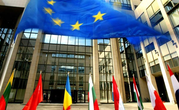

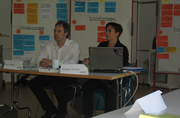
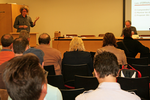



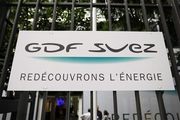


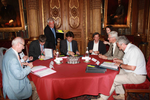

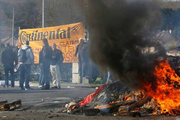
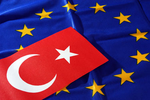


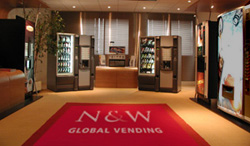
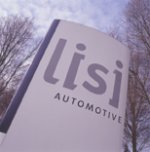


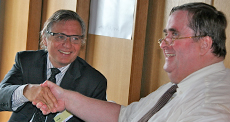
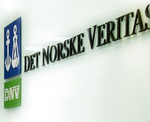
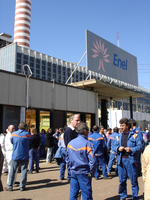



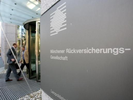
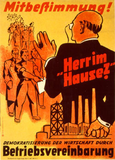

 On
June 17th, 2009, the Hans Böckler Foundation presented new
statistics concerning German co-determination. The evaluation shows
that almost 700 companies are controlled by a supervisory board which
is composed of half shareholder and half employee representatives. This
covers also seven companies constituted as European Companies or SE.
The statistics do not include companies with fewer than 2,000 German
employees. These have supervisory boards with only 1/3rd employee
representatives. The following textes are available only in German:
On
June 17th, 2009, the Hans Böckler Foundation presented new
statistics concerning German co-determination. The evaluation shows
that almost 700 companies are controlled by a supervisory board which
is composed of half shareholder and half employee representatives. This
covers also seven companies constituted as European Companies or SE.
The statistics do not include companies with fewer than 2,000 German
employees. These have supervisory boards with only 1/3rd employee
representatives. The following textes are available only in German:



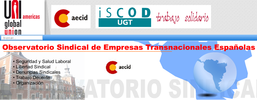
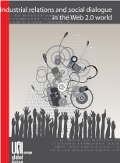

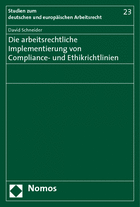
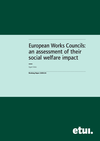



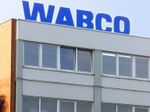


 Europe for IG Metall trade
union officers
Europe for IG Metall trade
union officers 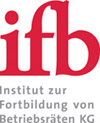
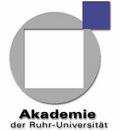 Further education at
Ruhr University
Further education at
Ruhr University